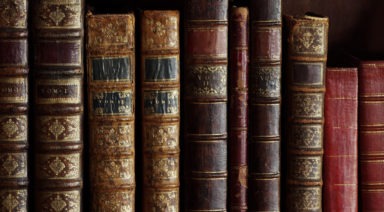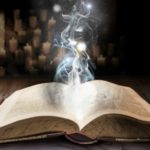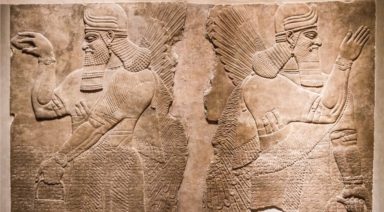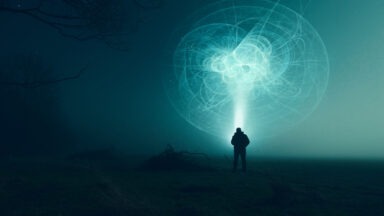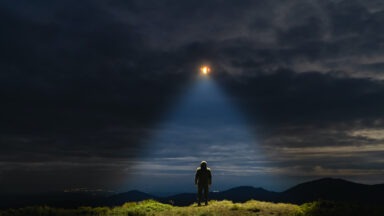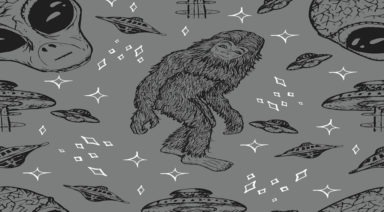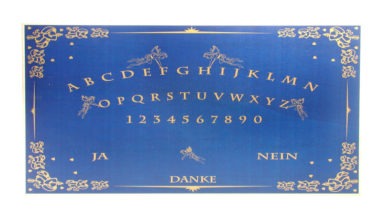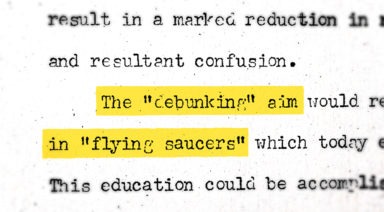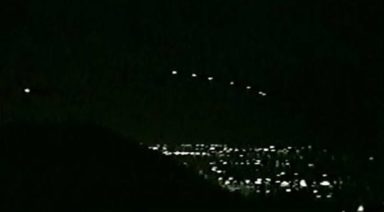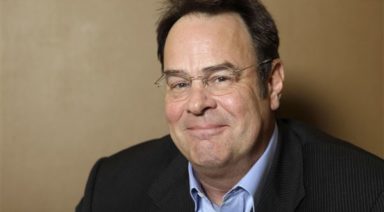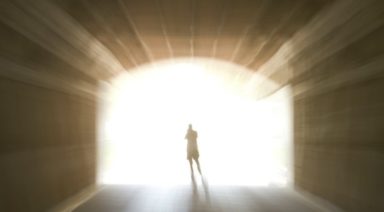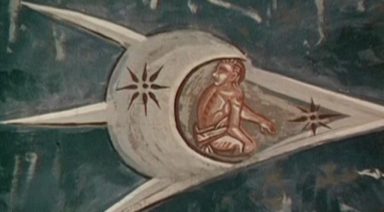Virginia Town Challenges Free Tarot Reading at New Age Store

When Mark Mullins thought to attract customers by offering free tarot readings at his new age store in rural Virginia, the city quickly informed him he was violating zoning laws. Now, Mullins finds himself embroiled in a battle with the city, accusing the council of pandering to religious zealots and impinging on his first amendment right of protected speech.
Mullins and his partner, Jerome VanDyke, own Mountain Magic and Tarot in downtown Richlands, Virginia. A six-year resident of the community, Mullins became interested in tarot as a teenager, saying his love for heavy metal sparked an interest in mysticism and the occult.
“I just wanted to read anything I could find on magic,” Mullins told Gaia in a recent interview. “It was the first thing I became obsessed with and it’s lasted 30 years.”
Mullins and VanDyke are the first openly gay couple to open a business in the rural, and overwhelmingly Christian town, admitting they sometimes face discrimination. But the two don’t seem phased by the occasional bigotry; instead they say local residents take greater issue with misconceptions surrounding the nature of their trade.
Richlands is a small, quiet community in the southwestern corner of the state, with a population of just over 4,000 residents. Prominently displayed on the town’s website is its motto, “The center of a friendly circle.” It touts itself as being one of the most peaceful towns in the state, and promotes its annual “Freedom Festival.”
But despite the city’s ostensible commitment to liberty and American values, Mullins and VanDyke said they experienced resistance from the town council the moment they applied for their business permit. Initially denying the couple, the town withheld any specific reasons for its refusal, until Mullins and VanDyke threatened a lawsuit.
Eventually, the city gave in, though it wasn’t long before it ordered police to stop the couple from reading tarot in their store – a move, they say, that was politically and religiously motivated.
“There was not one person who had any concrete reason why we shouldn’t be able to read tarot, except those saying it was against God’s will,” Mullins said.
Mullins and VanDyke were told that, due to zoning laws, they weren’t allowed to read tarot in their store, despite the fact they weren’t charging for it. The couple was told they would have to apply for a proper zoning permit at the next town council meeting if they wanted to read cards. In the meantime, Mullins began to read tarot for customers on the sidewalk outside the store, a practice the town ironically had no issue with.
Leading up to the meeting, Mullins and VanDyke interviewed with a multitude of news outlets and publications, generating a media storm around the issue.
When the day came for Mountain Magic to apply for its permit, both supporters and detractors showed up to voice their opinions.
Proponents raised a number of concerns with the town’s refusal to rezone the store, including first amendment rights of protected speech, religious freedom, and business from out-of-towners visiting Mountain Magic. But pastors from Richlands and surrounding communities also showed up to weigh in on the issue.
“There were about 15 to 25 preachers there, who spoke their two or three minutes,” VanDyke said. “They talked about how the town was going to go to hell and that demonic portals were going to open up and steal the children. The only things that were missing were the stakes and the bonfire, otherwise it would have been Salem.”
Mullins and VanDyke defended their position, explaining that the religious community’s conceptions of tarot were misconstrued and based on irrational fears. They also presented the council with a petition containing 874 signatures from the community supporting Mountain Magic’s readings.
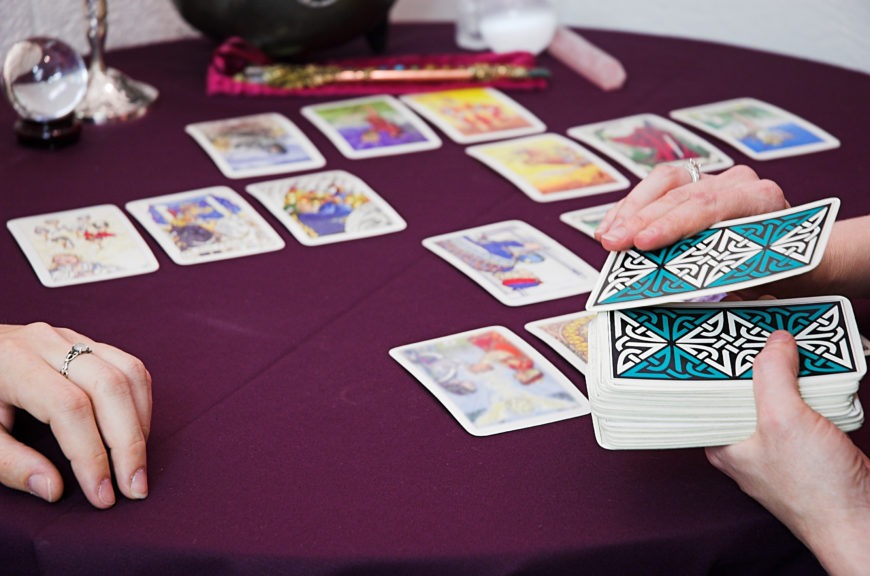
But the town’s Christian community remained unconvinced and continued to revert to antiquated and dogmatic principles, essentially confounding the shop’s practices with Satanism.
“I don’t really want my children thinking that’s ok if they go in there and they get confused and don’t know what something is,” one woman said, according to a transcript. “If we open that up in this area and we’re letting people go into this, will their blood be required of our hands?”
Proponents attempted to defend Mullins and VanDyke, explaining to the council that Mountain Magic wasn’t trying to corrupt the town’s children or even convert them to any religion. Instead, they were asking for the same first amendment freedoms given to local Christians. Others said religious concerns were entirely irrelevant.
“Every week, I’m approached for directions to their shop, so I do know that it is bringing in revenue,” a local business owner said, “while they’re here and they’re in town, they’re spending money on other businesses.”
In the end, the council refused to even vote on the issue, seeming to acquiesce to religious demands, despite an overwhelming presence of the shop’s advocates.
New Age Tarot Reading and Fortune Telling as Protected Speech
While Mullins and VanDyke were offering free new age tarot readings, it can be noted that the industry of fortune telling is one that is prone to charlatans and con-artists just trying to make a quick buck. There have been cases, some even leading to district appeals courts, in which customers of fortune tellers have been exploited or become victims of fraud.
But typically, these cases involve monetary gains or disputes between the city and a fortune teller over taxes or licensing fees. In the case of Mountain Magic, however, the readings were provided at no charge.
Since there was no exchange of money, a distinction should also be made between tarot card reading and fortune telling, despite the two being considered synonymous in business and legal jargon. Those unfamiliar with the practice might consider tarot to be a form of fortune telling, but most tarot readers believe there are important differences.
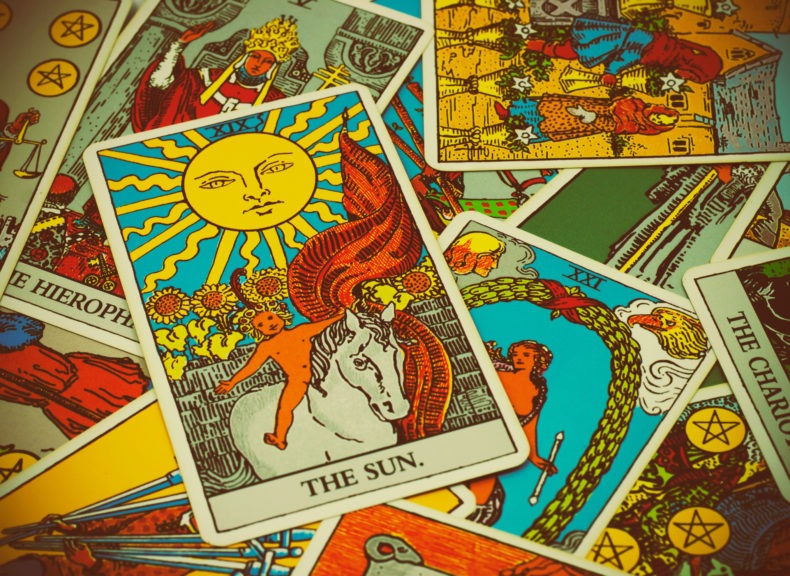
“Anyone connected with cards and divination will tell you that it’s just a mirror,” Defne Oztek, an experienced tarot reader said. “The tarot reader is just someone who can read the cards – they’re a vessel for communication.”
Oztek says the meaning extracted from a tarot card reading is tantamount to prayers and spiritual learnings one would obtain from reading the bible.
“Christians should be able to relate to that, these are tools of hope,” she said. “This is my bible, the first thing I do when I have no one to turn to is to run and grab my deck. Tarot is supposed to teach people real messages of hope and opportunity.”
But the town’s decision seems to have nothing to do with zoning issues, despite its claim. Clearly listed on the town’s business license application is a section permitting for a Fortune Teller/Palmist.
The city’s mayor told a local news station, “each town has the right to zone as they see fit,” and that Mountain Magic could appeal the town’s decision at the next council meeting. Though the council’s refusal to vote on the issue shows its unwillingness to compromise or even address the issue outright.
And though the contention over Mountain Magic’s tarot readings has been a headache for Mullins and VanDyke, they say business has picked up and that they’ve signed a two-year lease at a new location in town. For now, Mullins continues to read tarot on the street as long as there is demand among Richlands residents and the city allows it.
Gematria: Understanding the Numerical System that Decodes the Divine

Have you ever thought that numbers might tell stories just like words do? Gematria, a fascinating form of numerology found in Kabbalistic teachings, suggests that there’s a deep connection between numbers and words.
This ancient method, deeply rooted in sacred texts, proposes that every letter and word carries a numerical value that unveils deeper meanings. These connections might even offer clues to understanding both historical and future events through sacred texts like the Torah.
The concept of gematria numerology stems from the idea that mathematics is the universal language of nature and within it may be the keys to explaining our universe or evidence of supernatural power. Marty Leeds has taken this concept of the Kabbalistic gematria and applied it to the English language, believing that he has found a cipher in our alphabet to prove this theory.
What is Gematria?
Gematria is a numerological system where each letter of the Hebrew alphabet is assigned a specific numerical value. This system is used to interpret the hidden meanings within words, names, or phrases, based on the belief that God created the universe through the numerical values of Hebrew letters.
This practice, deeply rooted in the mystical aspects of the Hebrew Bible and embraced within Kabbalistic traditions, transcends simple word-to-number correspondences. It serves as a profound tool to explore the divine blueprint encoded within sacred texts, suggesting that every letter and word carries an intrinsic numerical value that reveals deeper, spiritual insights.
Modern scholars, including Marty Leeds, have extended the principles of gematria beyond Hebrew to the English language, proposing that these numerical ciphers uncover universal truths and mystical insights across different languages and cultures.
How Does Gematria Work?
The idea behind gematria numerology is that mathematics is a universal language, which might hold the keys to explaining our universe or even pointing to the existence of supernatural powers. In the practice of gematria, each Hebrew letter’s numerical value allows scholars and mystics to draw connections between words and uncover deeper meanings. These numerical values can also reflect broader concepts and beliefs. For instance:
- Number 888: In Christian numerology, the number 888 represents Jesus, or more specifically Christ the Redeemer. This comes from the fact that in Greek gematria, the letters of Jesus’ name add up to 888. This number is seen as a representation of infinite love and redemption.
- Number 666: Often recognized as the number of the beast from the Book of Revelation in the New Testament, 666 is associated with evil and Satan in popular culture. However, in the context of gematria, this number can have more complex interpretations depending on the scriptural and cultural context.
- Number 4: The number 4 is often seen as a symbol of stability and order in many cultures. In the context of gematria, it can represent the four elements (earth, water, air, fire), the four cardinal directions, or the foundational aspects of creation. This reflects its universal significance in forming the basis of the world’s structure.
- Number 33: This is a number with significant importance in Freemasonry where it signifies the highest degree of the Scottish Rite. In Kabbalistic tradition, it can represent the age at which Jesus was crucified and, by extension, a period of accomplishment or completion.
For example, the tzitzit, a shawl worn during Jewish ceremonies, provides a perfect illustration: the numerical value of its knots and strands adds up to 613, which intriguingly corresponds to the total number of commandments in the Torah. These numerical associations are believed to hold deeper spiritual or mystical significance, revealing connections that go beyond the surface and delve into the divine or universal truths.
What is Gematria Used For?
Gematria is not just about playing with numbers; it’s a tool embedded in the Kabbalistic tradition to interpret deeper meanings within sacred texts. Scholars use it to uncover insights about life, the divine, and cosmic mysteries. Beyond Judaism, gematria also appears in other cultures and languages, demonstrating its widespread influence and importance in various religious and philosophical traditions.
Exploring the Origins of Gematria
The practice of gematria is believed to have originated in the Jewish mystical tradition known as Kabbalah, but its influences can be traced back even further to ancient Greek and Arabic cultures. The practice was likely influenced by Greek isopsephy and Arabic abjad numerals, which also connect letters with numerical values. These practices highlight a universal quest to find deeper meaning in language and numbers across different cultures and historical periods.
Gematria in Different Cultures
While Hebrew gematria is most prominent, similar numerological practices exist in other cultures such as Greek and Arabic. These systems adapt to the peculiarities of their own languages and scriptures, providing a broad field of study for numerologists worldwide. The Greek system, for example, has been referenced by philosophers like Plato, showing gematria’s influence on early philosophical thought.
Examples of Gematria in Practice
- Biblical Texts and Jewish Tradition: Gematria is often used to interpret the Hebrew Bible. For instance, the Hebrew word for ‘life’ (חי) sums to 18, making it a significant number in Jewish culture.
- Modern Applications by Marty Leeds: Leeds argues that even the English alphabet can be broken down into numbers that reveal hidden codes, blending traditional and contemporary interpretations of gematria.
Kabbalistic Connections
In Kabbalah, gematria is not merely a numerological curiosity; it is an essential tool for exploring the esoteric and mystical dimensions of Hebrew scriptures. This practice is particularly valuable for interpreting the hidden meanings behind the names of God, such as the Tetragrammaton (YHWH) and other sacred words.
Kabbalists believe that each letter in these divine names carries specific numerical values that are direct expressions of cosmic energy and divine attributes. By decoding these numbers, mystics can gain insights into the fundamental structures of existence and the inner workings of the cosmos.
The use of gematria in Kabbalistic studies is seen as a method of interpretation and a form of meditation and spiritual practice, aimed at bringing practitioners closer to divine wisdom.
Key Aspects of Kabbalistic Gematria:
- Interpretation of divine names and cosmic energy
- Insights into the fundamental structures of existence
- Meditation and spiritual practice to connect with divine wisdom
Practical Uses of Gematria Today
While its roots are ancient, gematria has evolved to meet the needs of modern society. Today, it finds applications in various personal and practical contexts:
- Event Planning: Individuals use gematria to select auspicious dates for significant events, such as weddings or business openings. Aligning activities with favorable numerical values is believed to influence outcomes positively.
- Personal Insight: Gematria is used to analyze personal names, birth dates, and keywords, helping individuals uncover deeper spiritual meanings and potential life paths.
- Creative Applications: Artists and writers often use gematria to structure their works around specific numerical themes, adding a layer of symbolic significance to their creative outputs.
- Digital Accessibility: In the digital age, the principles of gematria have been adapted for online use, making this ancient wisdom accessible globally and allowing its exploration across different languages and cultures.
The Ongoing Relevance of Gematria
Gematria’s roots stretch deep into Kabbalistic mysticism and have branched out into modern linguistic studies. It remains a vital tool in the study of sacred texts and offers a unique perspective on the numerical patterns that many believe govern the universe. Whether used for spiritual discovery, theological study, or philosophical exploration, gematria captivates those who seek to understand the intersection of numbers and words in various cultures.
Gematria FAQs
How do you calculate words using gematria?
Calculating a word’s gematria value involves adding up the numerical values of each letter in the word. Different traditions may have their own set of values and methods, adding a layer of complexity to the calculations.
What is a Gematria Calculator?
A Gematria calculator is a digital tool that simplifies these calculations, allowing users to quickly find the numerical value of words and phrases across different Gematria systems.
How does gematria work in the Hebrew language?
In Hebrew, each letter is assigned a numerical value, and these numbers are used to explore relationships and uncover deeper symbolic meanings between words, based on their numerical equivalence.



